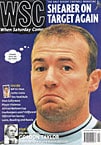 Celtic's chief executive Allan MacDonald has sacked his manager and criticised the team, but he is not a wholly innocent party, says Gary Oliver
Celtic's chief executive Allan MacDonald has sacked his manager and criticised the team, but he is not a wholly innocent party, says Gary Oliver
On the last weekend in January high winds loosened some of the guttering at Parkhead, causing the Scottish Cup tie against Inverness Caledonian Thistle to be postponed. Ten days later, the entire roof fell in on Celtic: ICT, a club just six years old, strolled to a cataclysmic 3-1 win, prompting a civil war in the home dressing-room during the half-time interval.
For the fourth time in the past six seasons Celtic had lost a cup tie to First Division opponents. With masterly understatement, chief executive Allan MacDonald described the defeat as “unacceptable”. Yet it is debatable whether in recent months anyone, including deposed manager John Barnes and the players humiliated by Inverness, has embarrassed Celtic more than MacDonald himself.
Though new to football, his appointment last year was broadly welcomed – primarily because he was the replacement for Fergus McCann. Aiming “to make Celtic the most successful club in Europe”, the new chief executive ingratiated himself by extending the contract of Henrik Larsson and resolving a dispute over bonus monies that had festered throughout 1998-99.
Not content with making headlines for banging the drum over the hypothetical Atlantic League (see WSC 156), Allan MacDonald subsequently made himself and his club a laughing stock, revealing he had commissioned a behavioural psychologist to report on the performance of referee Hugh Dallas in last May’s title decider against Rangers.
The powder keg match will be remembered for Dallas justifiably sending off two Celtic players (plus Rangers’ Rod Wallace) and awarding Rangers a penalty immediately after having been felled by a coin. Endorsing the study’s conclusion, that Dallas had been “over friendly” towards the opposition, Macdonald announced: “The referee’s body language was capable of provoking the kind of crowd reaction we don’t want to see inside Parkhead.”
The “evidence” comprised a still in which the referee appeared to have his hand on the backside of Rangers’ Giovanni van Bronckhorst. “Psychobabble nonsense,” retorted Partick Thistle’s Jim Oliver, chairman of the SFA referees committee. The reaction of pundit Davie Provan was: “MacDonald has done nothing for the image of a club that, for too long, has traded in paranoia.” And that’s from a former Celtic player.
Provan also fingered Allan MacDonald as culpable for the debacle against Inverness: “As chief executive of the football club, he has to accept that the buck stops with him.”It was MacDonald who personally had appointed Kenny Dalglish director of football, giving his golfing partner carte blanche to hire rookie John Barnes and engage other former cronies Terry Gennoe and Terry McDermott (the latter as the equivalent of a Butlins Redcoat).
It has never been made clear how, if at all, Dalglish’s “responsibility for strategic planning” with Celtic differs from the sinecure he latterly held at Blackburn. Kenny stonewalled questions on his precise role, deflecting legitimate enquiries with his customary blend of peevishness and flippancy.
In an earlier defence of John Barnes, his protégé, Dalglish said: “I stand by my decision and if it’s not right come and look for me.” But finding him was not always easy and, when Celtic went belly-up against Inverness, Kenny (and his wife) had to be summoned back from La Manga where he was on unspecified “club business”.
King Kenny’s courtier Alan Hansen ludicrously asserted that Dalglish is “braver to stay than to go” and is doing so because of his “allegiance to Celtic”. However, a more plausible explanation for his continuing at Parkhead was the claim by the Sunday Mirror that he has a rolling contract until aged 65 which will cost Celtic £750,000 to terminate.
Allan MacDonald, it transpires, is not so fortunate, currently having only a one-year probationary contract that ends on June 30. His stay might well be extended but there is little doubt that the plc board, anxious to prevent further dips in the club’s share price, now keep a much tighter rein on the activities of both MacDonald and Dalglish.
The club will almost certainly win the CIS League Cup on March 19 (defeat in the final by hapless Aberdeen is as unthinkable as losing to Inverness). But under the stewardship of Allan MacDonald, formerly a senior manager at British Aerospace, meaningful success for Celtic is not yet detected on the radar.
From WSC 158 April 2000. What was happening this month